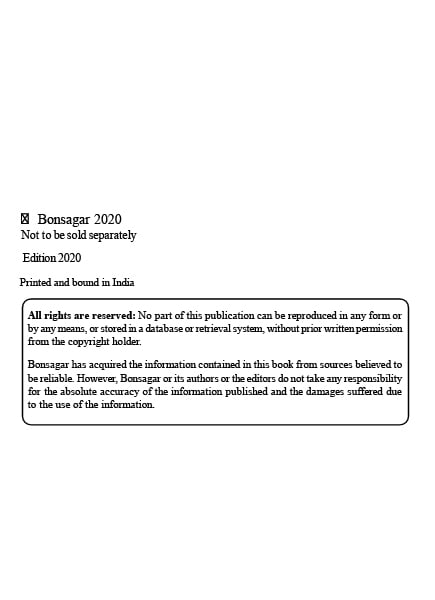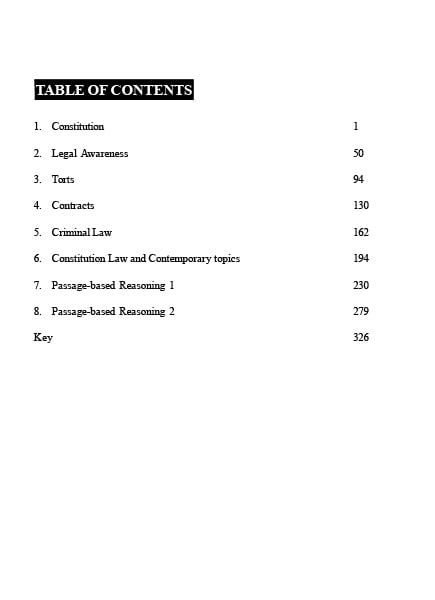How to Excel in the IPMAT: Key Strategies for Success
The Integrated Program in Management Aptitude Test (IPMAT) is a highly competitive exam designed to assess the aptitude and potential of students aspiring for the Integrated Program in Management (IPM) at premier IIMs. As this exam gains popularity among high school graduates, it has become a pathway to a rewarding career in management and business. However, excelling in the IPMAT requires diligent preparation, smart planning, and effective strategies. This guide will provide you with essential tips to enhance your chances of success in the IPMAT.
1. Understand the Exam Format
The first step in your IPMAT preparation is to thoroughly understand the exam pattern. The exam generally consists of three sections:
Quantitative Ability (QA): This section assesses your mathematical skills, covering topics such as arithmetic, algebra, geometry, and number systems.
Logical Reasoning (LR): It evaluates your ability to think logically, solve puzzles, interpret data, and recognize patterns.
Verbal Ability (VA): This section tests your command over the English language, including grammar, vocabulary, reading comprehension, and sentence construction.
The exam is usually 2 hours long, with a fixed time allocated to each section. The format generally includes multiple-choice questions (MCQs), with some sections incorporating short-answer questions.
2. Build a Realistic Study Plan
A well-organized study plan is essential to cover all the topics within the limited time available. Here’s how you can design an effective plan:
Set specific goals: Break the syllabus into manageable parts and set weekly objectives. For instance, focus on arithmetic and algebra in the first month, and shift your attention to logical reasoning and vocabulary-building for the verbal section in the next month.
Tackle weak areas: Identify the sections where you struggle the most and allocate more time to those. Whether it’s algebra in QA or tricky logical reasoning problems, give extra attention to improving in these areas.
Take regular breaks: Avoid long, uninterrupted study sessions. Schedule short breaks to maintain mental clarity and focus during study hours.
Include time for revision: Reserve one day a week for revision. This ensures you retain what you’ve learned and can reinforce key concepts.
3. Master the Basics
To excel in IPMAT, it’s crucial to master the fundamentals. A strong foundation in basic mathematics is particularly important for the Quantitative Ability (QA) section. Key areas to focus on include:
Arithmetic: Topics like percentages, ratios, averages, time-speed-distance, and profit and loss.
Algebra: Work on linear and quadratic equations, inequalities, and basic algebraic expressions.
Geometry: Understand the properties of triangles, circles, lines, and common geometric formulas.
Number Systems: Be proficient in divisibility rules, prime numbers, HCF, and LCM.
Once you’ve built a solid understanding of these basics, gradually move to more advanced topics. Practice regularly to strengthen your grasp on these core concepts.
4. Practice with Past Papers and Mock Tests
One of the most effective ways to prepare for any exam is to solve previous years’ papers and take mock tests. These practices offer several advantages:
Familiarization with the Exam Format: Past papers provide insight into the type and style of questions, which helps reduce exam-day anxiety.
Time Management: Mock tests simulate real exam conditions and teach you to manage your time effectively, ensuring that you can complete the exam within the allotted time.
Progress Tracking: Regular mock tests help you assess your progress and pinpoint areas for improvement.
Learn from Mistakes: Reviewing your performance in mock tests allows you to identify and correct mistakes, ensuring you don’t repeat them in the actual exam.
Be sure to thoroughly review each mock test and focus on questions you got wrong. This practice will help improve your performance on exam day.
5. Strengthen Your Logical Reasoning Skills
The Logical Reasoning (LR) section is often seen as the toughest part of the IPMAT. To improve your LR skills:
Practice puzzles: Logical reasoning often involves puzzles related to seating arrangements, blood relations, and conditions-based arrangements. Regular practice helps sharpen your logical thinking.
Work on data interpretation: Practice interpreting data presented in tables, charts, and graphs. These questions test your ability to make logical deductions from data.
Focus on patterns: Many LR questions require pattern recognition, whether with numbers, letters, or relationships. Training your brain to identify these patterns quickly can make a big difference.
6. Enhance Verbal Ability through Consistent Reading
The Verbal Ability (VA) section tests your English proficiency, especially in reading comprehension, grammar, and vocabulary. To improve your VA score:
Read regularly: Develop a habit of reading newspapers, novels, or online articles to improve both your reading speed and comprehension. This also helps expand your vocabulary and familiarize you with different writing styles.
Practice reading comprehension (RC): Focus on improving your ability to understand and analyze written texts, paying attention to the central theme, inferences, and the tone of the passage.
Brush up on grammar: Review key grammar rules, including sentence structure, subject-verb agreement, tenses, and punctuation. Also, practice sentence correction exercises.
Build your vocabulary: Learn new words daily using apps, flashcards, or vocabulary books. A rich vocabulary will help you answer RC and sentence correction questions with greater accuracy.
7. Stay Informed with Current Affairs
Although current affairs don’t directly appear in the IPMAT exam, they play a significant role in the Personal Interview (PI) and Written Ability Test (WAT) stages of the selection process. Keeping up with current events, particularly in business, economics, and global affairs, will help you during the interview stage, where questions related to contemporary issues are common.
8. Develop Effective Test-Taking Strategies
It’s essential to have a solid test-taking strategy for the actual exam. Here are some tips to keep in mind:
Time management: Allocate a specific amount of time to each section and stick to it. If you get stuck on a difficult question, move on next and return to it later.
Accuracy over speed: Although speed is important, accuracy is paramount. Answer questions you are sure of first, then tackle the more difficult ones.
Avoid random guessing: Given that negative marking is usually applied, avoid guessing answers without reasoning. Only attempt questions where you can confidently eliminate incorrect choices.
9. Stay Consistent and Maintain a Positive Attitude
Consistency and a positive mindset are key to success in the IPMAT. Stay disciplined, maintain regular study habits, and keep your focus on improvement. Don’t let setbacks or challenging sections discourage you. Believe in your preparation and stay motivated throughout the process.
Conclusion
Excelling in the IPMAT requires a strategic approach, focused preparation, and consistent effort. By understanding the exam pattern, mastering the basics, regularly practicing with mock tests and past papers, and staying motivated, you can significantly enhance your chances of success. The journey may be challenging, but with the right mindset and preparation, cracking the IPMAT and securing a place in the prestigious IPM program is entirely within your reach.




